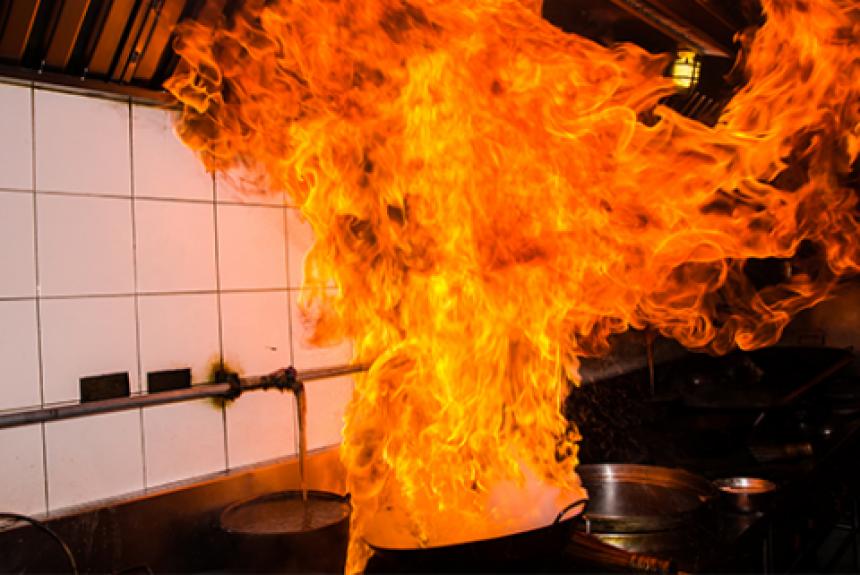
Throughout the year we hear stories about families who have lost their home because of a fire. For the most part, those fires tend to fall within two categories—space heater related incidents and kitchen fires. I’d like to discuss the latter of these with you.
Oil in a frying pan is one of the biggest contributors to house fires. It takes very little for a flame to find its way into the pan, but the bigger problem usually occurs right after that. For many, the natural reaction to put out a fire of any kind is to throw water on it. In the instance of a grease fire, that only exacerbates the problem.
Firefighting training schools demonstrate this scenario with a deep fat fryer setup on the fire field. An instructor dons a fire suit and, using an eight ounce cup of water at the end of a 10-foot pole, tosses water onto a grease fire. The reaction immediately grabs the attention of everyone watching.
The water, being heavier than the oil, sinks to the bottom of the fryer where it instantly becomes superheated. Steam is the byproduct of this, and the steam immediately shoots up and out, taking the burning oil with it. On the open field, the result is a 30-foot high fireball resembling a mushroom cloud from a nuclear explosion. Inside the confines of a kitchen, this fireball hits the ceiling and virtually fills the entire room.
What To Do
First of all, do not throw sugar or flour on a grease fire. One cup of either creates an explosion with the force of two sticks of dynamite. Don’t try and move the pan. You run the risk of spilling the burning grease all over the place, including yourself. In lieu of an appropriate fire extinguisher, take the following steps:
1. Turn off the burner
2. Wet a dishcloth and wring it out
3. Cover the pan and wait until it has cooled down
Stay safe all year long.
If you have any questions about your Loss Control needs, contact us.
Terry Hoyle is BXSI’s Vice President of Loss Control for the Louisiana region. He is a Certified Utility Safety Administrator (CUSA), a Certified Mold Remediator (CMR), and a Certified Professional Environmental Auditor (CPEA). For nearly 30 years, Terry has assisted organizations in the design of environmental, health, and safety process strategies to prevent employee injury mishaps, property damage exposures, and internal and external exposures that create a risk to their financial success and overall insurability.
Not a Deposit.
Not FDIC-Insured.
Not Insured by any Government Agency.
Not Guaranteed by the Bank.
Not a Condition of Any Bank Loan, Product or Service.
Always refer to your policy for exact coverage terms and conditions.
Services provided by BXS Insurance are supplemental to the insurance carrier and your legal counsel.
© Fintactix, LLC 2015

